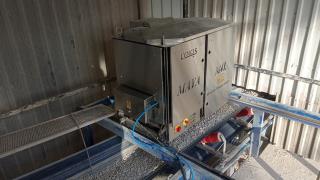Researchers at Lehigh University have engineered, built and tested an innovative thermal energy storage prototype system that is ready for decarbonisation applications. The Thermal Battery (TB) technology consists of engineered cementitious materials and thermosyphons in a combination that enables fast and efficient thermal performance. By Dr Carlos Romero, Lehigh University Thermal Energy Storage Team, USA.
Lehigh University, with US Department of Energy (DOE) funding, has proven the viability and demonstrated the capabilities of a novel Thermal Battery (TB) for power generation and decarbonisation applications. The TB stores thermal energy as sensible heat in engineered concrete and mitigates the poor thermal conductivity of the storage media using thermosyphons that can act as superconductors of heat. The TB was developed to help with flexibilisation of conventional power plants (see Figure 1). Due to the inherent intermittence of renewable energy sources and fluctuating power demand, there has been an increasing need for more flexible operation of power generation systems.
